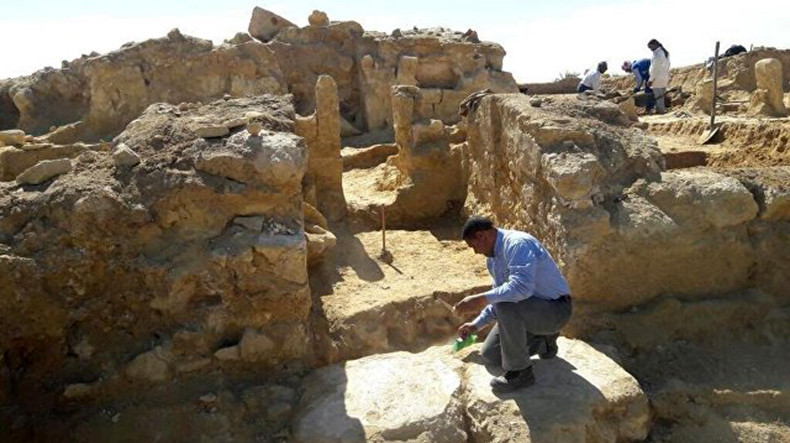
Archaeologists unearth village in Egypt older than the pharaohs
Archaeologists believe they have unearthed one of Egypt's oldest-known settlements in the Nile Delta, dating back some 7,000 years to the Neolithic era, CNN reported.
The country's ministry of antiquities announced the discovery of a village in the Tell el-Samara area of the Dakahlia governorate, north of Cairo, in a statement posted to Facebook on Sunday.
According to the source, a joint team of Egyptian and French archaeologists say they located several storage silos where organic matter -- such as animal bones and plant remains -- were recovered in addition to fragments of pottery and stone tools.
These findings allowed the expedition to date the village to around 5,000 BC, which would mean it was established approximately 2,500 years before work began on the Great Pyramid of Giza, one of Egypt's oldest and most famous structures.
The Great Pyramid's newest mystery.
Expedition leader Frederik Geo said in the ministry statement that excavations at the site had been ongoing since 2015 and the discovery would allow experts to learn more about the communities that "were living in the Delta for thousands of years before the First Dynasty (the period of unifying the North and the South by King Mina and the beginning of Egyptian History)."
Newsfeed
Videos






























